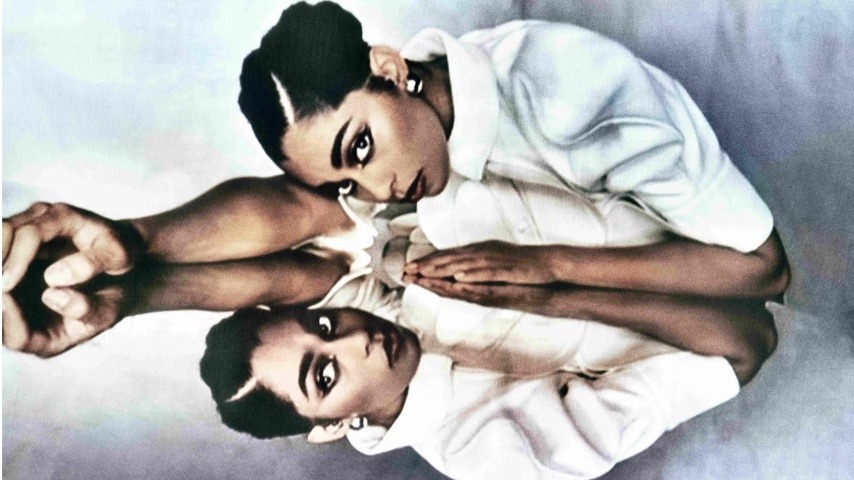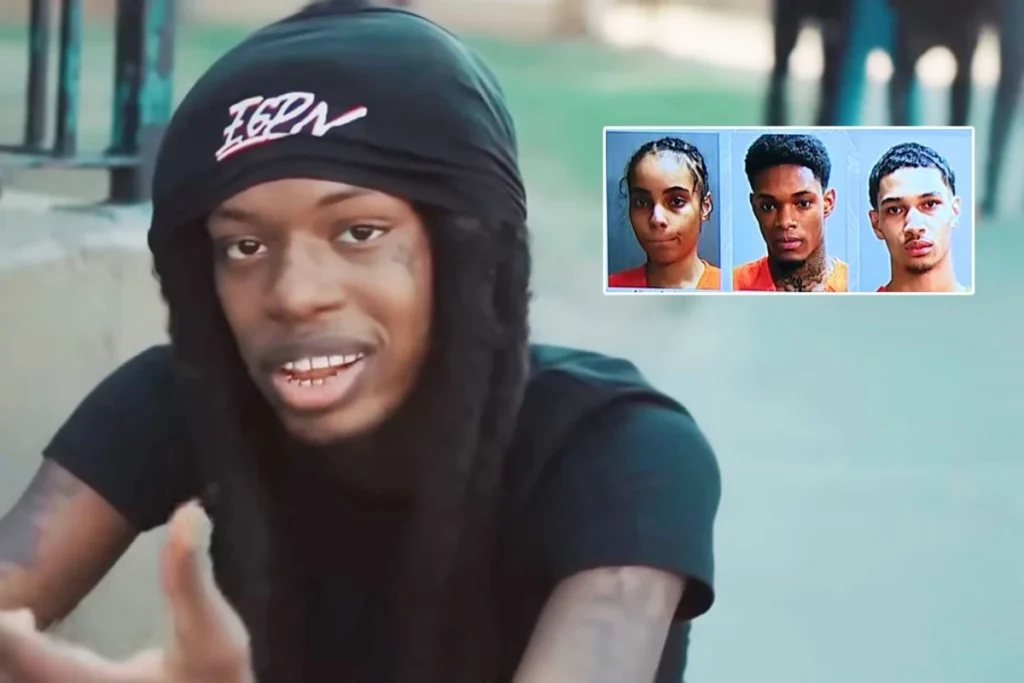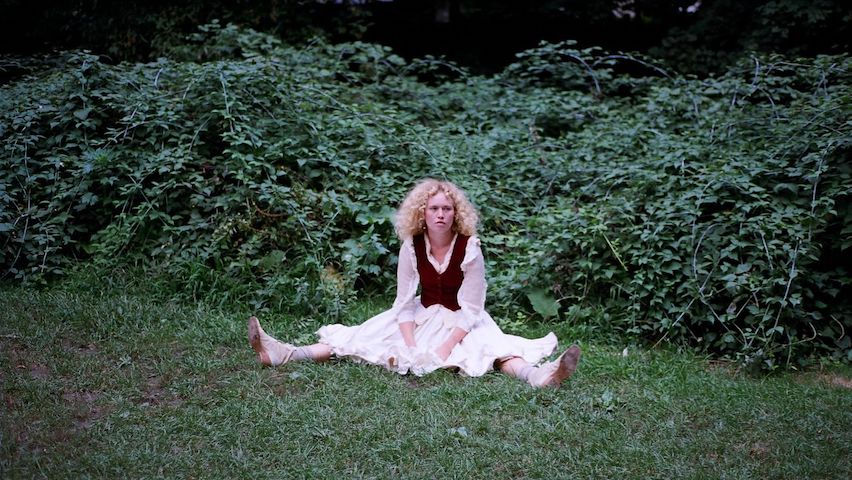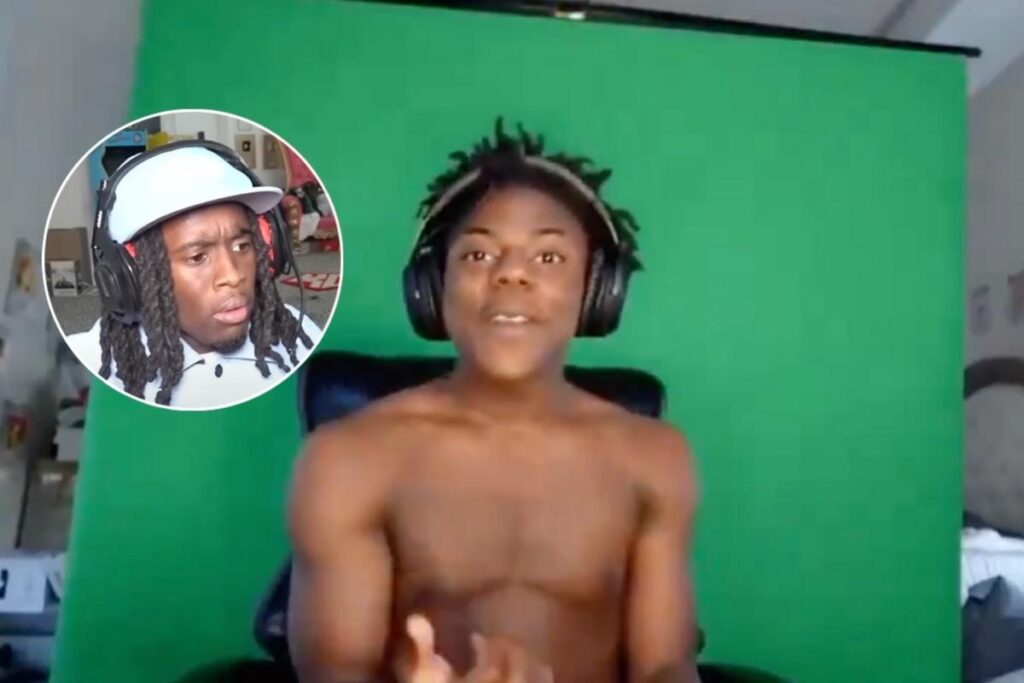Celeste Epiphany Waite—who records and performs as the single-moniker neo-soul diva Celeste—has packed a lot of notable accomplishments into her relatively brief 26 years on this planet. The most recent one being the Best Original Song Oscar nomination she just earned for “Hear My Voice,” her Gospel-uplifting ballad feature in Aaron Sorkin’s Netflix docudrama The Trial of the Chicago 7; co-penned with her go-to collaborator Daniel Pemberton, the number was also nominated for a Golden Globe this year. She sighs, dreamily, imagining the next jewel in her already-glittering crowd: Accepting an actual Academy Award this April 25. “That would just be very surreal and totally amazing if I did win,” she says. And—given her remarkable track record so far—that golden statue on her mantle is a very distinct possibility.
Born to a British mother and Jamaican father—whose early death moved Celeste to pen her first sorrowful song at 16, “Sirens”—this go-getter always instinctively knew that she wanted to be a professional singer, and she started leapfrogging over milestones until she became one. For her 18th birthday, she received a MacBook, and she quickly mastered GarageBand for compositions. By 2014, she was adding her plush, velvety voice to the work of electronic acts like Avicii, Tieks, and Real Lies, and by 2017 she’d issued her first The Milk and the Honey EP on Lily Allen’s Bank Holiday imprint. In 2018, at the urging of singer Michael Kiwanuka, she jumped to Polydor Records, and her dazzling debut album, this year’s Not Your Muse, confirmed her stardom by rocketing to #1 on the UK charts. Along the way, she’s won the Rising Star Award at last year’s Brits, gotten support from big fans like Elton John on his Beats 1 broadcast, broke out via a star-making residency at London’s Laylow venue, and finally found true love last year with English model and poet Sonny Hall. And her song catalog just keeps growing, with a steady stream of one-offs like “Hear My Voice,” included on the 21-track deluxe edition of Not Your Muse. Celeste paused to catch her breath and give a quick rundown of her busy career.
Paste: I have a theory that you lived at least one past life, and left it with tons of unfinished books, paintings or symphonies. And now you’re in a hyper-speed hurry to get as much done as possible.
Celeste: Yeah! I actually feel like that myself sometimes. And I’ve actually been tempted to do that thing where they regress you to find out—I’ve been really tempted to have that done. Because I also have really irrational fears that shouldn’t exist within me, and I feel like they might come from some past place because I really haven’t experienced any of those things. Like, I really don’t like going on boats, but I’ve never had a bad experience on one, touch wood. But when I was younger, if there was water anywhere nearby, I would hurtle myself toward the water, even if it was dangerous. I remember once when I was at a health club with my mom, and she turned around to get change and I ran to the adults’ pool and jumped in, and I nearly drowned. But even before then, I was scared of the ocean and being on boats, and my mom said that wherever there was water, I would try and jump in. So I like that theory a lot, actually. But I feel like if I do the regression thing and I start believing in what they tell me, and it makes me some sort of delusional person that thinks I was an Egyptian queen in a past life, then that’s not the desired effect.
Paste: Well, your middle name is Epiphany. What was your mom feeling when you were born?
Celeste: I think she was probably just overwhelmed and overcome with those kinds of feelings. She actually wanted that to be my first name, but then my nan, my grandma, she couldn’t pronounce the name very well so she didn’t want me to be called Epiphany. So then apparently my dad came up with the name Celeste. But my mom really wanted to call me Epiphany because at the time, her and all her friends were really into that Angel Heart film with Lisa Bonet. She’s called Epiphany in that, and my mom was really taken with her, and the film was so mystical and cool, and they were in their 20s, so she was like, “Yeah! I’ll call my daughter Epiphany!”
Paste: You had a hand in co-writing almost every single song on your album. And if you pay close attention, as on “Some Goodbyes Come With Hellos,” you’ve hidden a lot of your philosophies in the lyrics.
Celeste: The message in that song is something that I’ve definitely found to be true—and it’s kind of cliche, but when one door closes, eventually (if not straight away) another one opens. Or it’s always been open, and you just have to take a moment to realize that it actually has. And I’ve really started to realize that, definitely. And something else I’ve realized is that—even if something feels quite negative, whatever it is that’s going on—if you try to see the positive in it and try to see that optimism within it, then it usually ends up turning around in that way for you. It’s just about persevering through all that, and believing that, in the center of it, something good will come of it eventually. It isn’t exactly a mindset thing, but I have found that to be true.
Paste: My motto is, everybody has an agenda, and it rarely includes you—get used to it.
Celeste: Yeah. A lot of the time. I see that in some places being very, very true, where everyone has the thing that they need or that they want to fulfill, and it’s not always something that they can do alone. So I guess they have to position people around them to elevate them to be able to do those kinds of things. But I feel that in some places, there are still people who do things for the good of others, not just for themselves.
Paste: Taking a negative and making it a positive—you were working at the Black Horse pub one year, and the next you’re at the Laylow in Ladbroke Grove, with celebrities like Idris Elba and Riz Ahmed catching your sets. The Universe stamped its foot on your career accelerator for sure.
Celeste: Yeah. And I definitely believe in all of that stuff , and I definitely try to sort of harness those powers and not ignore them. I tend to not ignore those kinds of signs, because I find it serves me well if I pay attention to it. But from the point of working in the pub, I was always working there with the idea that “This is the money that I earn on the weekends so that during the week I can afford to pay for my training and to go to London and spend a few days in the studio and then come back and do my job on the weekends.” So whenever I wasn’t in the studio, I would work in the pub, just to facilitate my being able to do that. I always had the idea that, at some stage, I would eventually be heard by whoever was around at the time. I mean, I didn’t think, “I will be at this place called Laylow and I’ll be singing this song, and Idris Elba will be there!” I didn’t see the future. But I definitely had that sort of belief in what I was doing that I would reach those sorts of people and those sorts of places eventually. I had to just keep trying. I always kept that in my mind—“This thing is a bit of a compromise and it’s testing me, but it’s the thing that I have to do to allow me to do this other thing that I really care about.
Paste: But your monthlong residency at the Laylow sounds wild. Even Spike Lee showed up and asked for an autograph?
Celeste: Yeah. It was kind of surreal. And I wasn’t exactly starstruck. But I definitely felt more nervous performing there to a bunch of people that I knew who they were and what they stood for and I really respected them. I felt really nervous in that setting. But with the Spike Lee thing, I remember he was coming to this dinner that I was performing at, so in the down time I thought, “I’m gonna get one of my vinyls and put it on the bookshelf where they’re having dinner, so if he happens to ask me for a vinyl, then it’s right there so I don’t have to go around trying to fuss and find it.” So in the middle of the day, I went and put the vinyl there with that exact idea in mind. And then after the performance, he was like, “Have you got a CD or an album or a vinyl or something?” And I said, “Oh yeah—I think there’s one just right over there!”
Paste: Who else did you meet during that residency?
Celeste: Well, it’s been quiet over the last year. But it’s very much that sort of place where all the creative types go in London. And it’s quite an array of people—it’s not just the most famous or the most successful people. And it’s where a lot of musicians who are coming up get to play their first gigs, because they definitely have that culture around what they’re doing, of giving young people a platform. So it’s some of London’s elite that pay to keep it open, but then it gives the new generation a platform to facilitate their ideas and play a few gigs. It’s quite healthy in that sense, because some of those people wouldn’t ordinarily come across me or my friends. But that’s where it all meets, so it’s kind of this melting pot that can create a lot of amazing opportunities for people. So Edward Enninful was there one evening, the editor at British Vogue. And he’s from Ladbroke Grove, right down the road where Laylow comes off of. And I’ve met Mick Jagger there before, as well. It’s just this crazy mix of people, and there are all sorts of things going on there all the time. But they pretty much welcome everyone in.
Paste: And you still live there, right?
Celeste: I still live in that area—I basically live on the other side of the canal by Laylow. And I don’t go out that much at night, but that’s still probably the main place that I go because it’s so close, and right across the water. And if I feel like going home and getting changed halfway through, I can do a quick outfit change and go right back.
Paste: Are you and Sonny Hall still together? Because between the two of you, you probably know everyone in England. He worked for Kate Moss, Rita Ora discovered him, and now that he’s making waves in literary circles you’re probably hanging out with cool authors.
Celeste: Yeah. We’re both quite cynical in that way—we like who we like because of who they are as people. And a lot of my main group of friends—or peers—are in East London, because that’s where I lived when I first moved to London. I lived in Islington, but it bordered Dalston, which is where a lot of the fashion stuff was happening. And he’d always been more West London, so when we walk around, we both know a lot of people. And there are people that I’ve met here and there, and people that he knows more than I do. But I kind of like it. And we both just speak to random people sometimes, too. There’s this guy called Moe, who’s always around the market, and he’s always doing something a little bit dodgy, but we just always talk to him—we’d spend an hour if we bumped into him, and I quite like that. He always has some wisdom to impart to us.
Paste: It takes a lot of guts to cover Nat King Cole, Edith Piaf’s “La Vie en Rose,” and—with Jon Batiste—something so definitive as Curtis Mayfield’s “It’s Alright.” You managed to redo it and make it sound new and original.
Celeste: Well, I think the credit really is with Jon Batiste on that song. He did such an incredible score on the movie Soul, and I guess I drew parallels between him and Cab Calloway, and what Cab Calloway did with music back in the ’30s, and how he brought jazz and blues—essentially, that music of black origin—to the screen, whereas at the time, the gatekeepers were mainly white people. And this had nothing to do with skin color at all. It’s about understanding a culture that you may not have been able to be side by side with. And with Jon Batiste, one of the reasons why his soundtrack is so great, and why he would do the cover of a classic Curtis Mayfield song is, he wasn’t contained by any rules. Because usually, when you’re doing music for a film, you kind of have boundaries and things that are set in place, like, “You have to do this” and “You have to do that.” But even with that song we did? We didn’t even do it to a metronome, and even when you do a simple TV performance, you usually play to a click track. But he didn’t. And him just being so in touch and really maintaining his integrity in his approach to making that soundtrack is definitely the embodiment of what that film is all about. And he definitely stayed true to that vision, and I think that’s amazing. When I spoke to him about doing this duet, we just spoke about how many duets we were fond of. And I guess something that we have in common is that this is the music that we grew up listening to. So although it’s definitely brave to tackle certain songs and try to make them your own, there’s such a sense of familiarity with them that you don’t feel too intimidated by them. So growing up listening to that stuff was how I learned to sing—just singing along to those great soul musicians. So it just came natural to me to do it, really.




